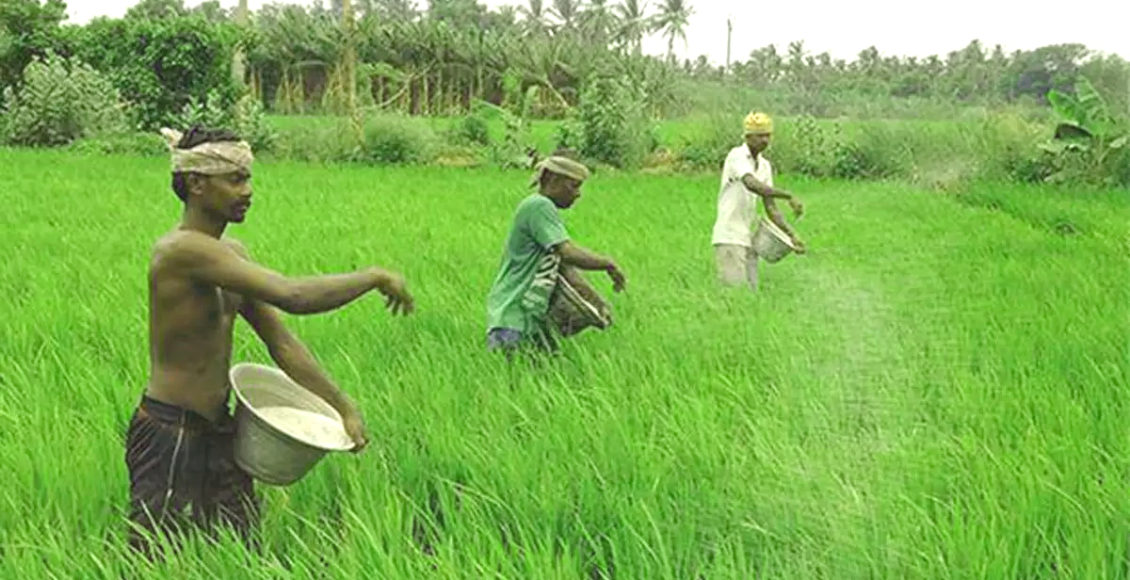
Initiative towards making agriculture a profitable business for farmers in Telangana
About half of the population of India depends on agriculture for its livelihood and majority are marginal and smallholder farmers with a non-profitable business of farming with one of the reason being inefficient annual cropping plan. The agriculture produce in the market is totally dependent on what grows in the farms and Indian farmers are still following the age old practices of repetitive cropping every year which leads to glut in the market for some crops whereas shortage for other crops. Most farmers cultivate the crops without considering demand and supply situation in the market. In most of the cases, there is limited support system or advice for farmers, except for some corporates helping farmers with advisory and buybacks, to plan what to cultivate and when to cultivate. In this regard, Telangana government has recently taken a huge step towards regulated farming to ensure better prices and income for farmers and ensure natural resource management like irrigation water.
This is first time, a state government has decided to tell the farmers what to grow, when and how much to grow to make agricultural operations profitable. Same crop every year weakens the soil strength thus rotation of crops under the proposed model will help in making the same land more fertile.
Telangana government is considering regulating the crops cultivated in the state and has proposed implementing a policy. To regulate the cropping pattern and to assess the demand for suggesting area, varieties and cultivation methods, government will set up three committees. These committees will monitor global and national trends and recommend annual cultivation plan based on demand-supply gaps. The three committees are
- Agricultural Produce Market Committee will closely monitor the demand of agri-produce in India and abroad and will come up with recommendations. These recommendations will decide the acreage of crops to be grown in the Kharif and Rabi seasons. These plans will be developed every year.
- Cotton Research and Development Centre will specifically look into the cotton trends and help the farmers with necessary recommendations on varieties to grow and how to market their produce.
- Agricultural Research Committee will study and make recommendations to change cultivation practices.
According to this policy, coming Kharif season farmers will be asked to grow paddy on 50 lakh acres (including the Telangana Sona variety on 10 lakh acres of land), cotton on 50 lakh acres and red gram on 10 lakh acres. Peri-urban farmlands will grow vegetables and horticultural crops to tap the demand. A detailed crop plan will be soon released by government and agricultural inputs will be marketed accordingly. According to the initial surveys, majority of farmers are accepting this concept and government is ready to back them up. This will be implemented with stringent measures so that if farmers do not follow the state’s suggestions, they will not be allowed to avail minimum support price (MSP) and input subsidy under the Rythu Bandhu scheme. With this policy, farmers need not depend on the government to buy their produce on a humanitarian consideration (as being done now due to COVID) and can survive on their own by cultivating crops that has market demand and fetch them good prices.
Policy will leverage technology platforms to monitor the cropping pattern such as use of remote sensing technology using the high-resolution cameras to map the area under cultivation and estimating yield using crop cutting experiment data. For this the Telangana Remote Sensing Application Centre (TRAC), an autonomous body, will be deployed. Aspects like food security and nutritional requirement of people will also be considered into the crop regulation policy and it will be a continuous process. In addition to this, cold storage facilities, food processing centres and cleaning units will also be set up at considerable scale for increasing farmers’ profits.
This policy by Telangana government will benefit marginal and smallholder farmers by growing one crop in a region by large number of farmers. This will promote farmer producer organization (FPOs) concept benefiting farmers to plan their package of practices, have uniform crop in huge quantities and market their produce together fetching better prices. The implementation of technologies like mechanization, application of artificial intelligence and precision farming will also become easier if all the farmers in the region are growing same crop. The policy will also impact agri-input industry with more demand based planning of their products, targeting marketing with respect to geographies and will also reduce company’s sales returns.
These steps taken by Telangana to make agriculture a profitable business for farmers will ultimately generate more revenues for the state.
Author:

Consultant
Connect with Authors at: agribusiness@sathguru.com
 Grow Beyond
Grow Beyond 

